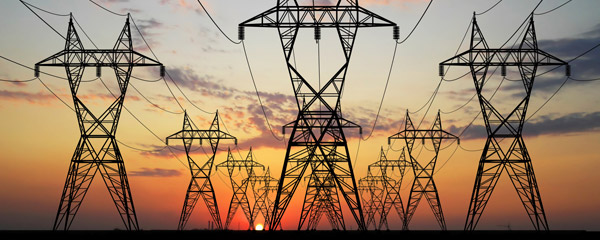Business
NERC Introduces Marginal Rise In Electricity Tariff

The 2014 bi-annual review of the Multi Year Tariff Order (MYTO) conducted by the Nigerian Electricity Regulatory Commission (NERC) Monday in Abuja revealed a marginal increase in the monthly charges to be paid by certain classes of electricity consumers in the country for energy services supplied to them.
Addressing Pressmen at the Headquarters, Dr. Sam Amadi noted that the increase, which would mostly affect customers within the tariff classes of Residential-2 (R2) and Commercial-1 (R1), would however not affect the total amount payable by consumers as fixed charge components that are usually embedded in their monthly electricity bills.
With the new structure, the total monthly fixed charge in the bill of customers who are within the Ikeja Electricity Distribution Company in Lagos which was hitherto N894.56k would now be N750 within the new tariff structure while that of customers in the Abuja Electricity Distribution Company would remain at N702 for R2 customers.
The new tariff also noted a slight increase in the retail price of electricity supplied to R2 customers in Abuja distribution network by N1.45k from the previous N13.25k to N14.70k while the same customer class in Ikeja will have no increase in their retail price for electricity.
Mr. Eyo Ekpo NERC commissioner, further explained the need for the increase in tariff, in another interactive session Monday, with Online influencers, as he enphasised the need for Nigerians to embrace the reforms currently being introduced in the power sector in a bid to guaranty stability.
Ekpo said, “Everybody that provides a service puts in something into whatever he tells you to pay, that covers the cost of having to go across the country and build branches, like the bank for instance, that is a fixed charge.”
The commissioner continued, “What we have done is to separate that out. When you look at the tariff of the sector, distribution for instance, you will see that there are 11 different distribution companies with 11 different sets of tariff broken down into 14 classes. So they are actually 155 different electricity tariff that people pay in this country depending on who you are whether you are an industry, government or individual”.
He then maintained that the, “bottom line is that we don’t have power, so what NERC has done was to try at least, to lay a foundation for a sector that actually works”.
Appealing to the public, he concluded that the charges the public pay in the bank, “the charges we pay for telecom and water includes a fixed charge.”
“It has taken Nigeria 62 years to deliver 4000 megawatts a day, in the same period of time, Singapore, Malaysia, Korea before whom we all started this business have not only caught-up with us, they caught-up with us like 40-years ago. They also outstripped us and left us standing. Turning that around to a position where your electricity sector is not a hindrance to our economy, but an enabler, is not going to happen overnight”. The commissioner concluded.
An explicit interview [Conversations With Abang Mercy] about the power sector reforms embarked upon by the National Electricity Regulatory Commission led by Mr. Sam Amadi to be published next week.






